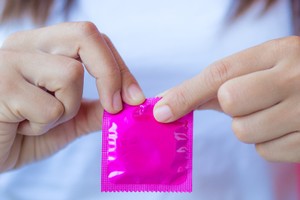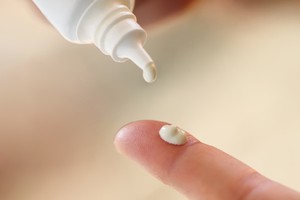The vagina is one of the most misunderstood body parts. If your vagina could speak, what would she tell you? I guess she would be confused. One moment we see an article saying detox your vagina and the next moment we see another article telling us why “detoxing” the vagina is an unhealthy thing to do.
With plenty of unverified information available on the internet, we are often misled to do this and that to “care” for the vagina. When in reality, vagina self-care is simply making conscious lifestyle modifications to make the vagina healthier.
The first step to self-care is realizing the cause of the problem; here is a list of top reasons that cause vagina harm:
1) Stress
You never expected this to be on the list, right? But stress causes hormonal imbalance that can be detrimental to vaginal health.
Also, scratching the vagina is a reflex for some women when stressed; you itch and you scratch, and you have the urge to scratch more because you probably got microtears from scratching which itch and so the scratch-itch cycle continues.
2) Chemicals
We are constantly exposing the vagina to chemicals and we sometimes aren’t aware. The scented tissue, feminine wash, soap, detergents, spermicides, lubricants, vaginal conditioners and laundry bars all contain chemicals. The mucous membrane in the vagina walls absorbs chemicals rapidly so it’s best you minimize exposure to chemicals by ditching the unnecessary vaginal care items like soap, feminine wash, vaginal conditioners and then replace items like scented tissues with plain tissues.
Take a look at the ingredients list of your spermicide and lubricants for components such as glycerin, petroleum jelly, nonoxynol 9, parabens and benzocaine which are all known to cause a rapid growth of bacteria and contact dermatitis.
3) Underwear
This is quite surprising, isn’t it? The type of underwear we wear affects our vaginal health way more than we imagine.
It is best to go bare but for those who can’t, be sure your panties aren’t too tight as they can trap in moisture and become a breeding ground for bacteria or cause ingrown hair. When shopping, always get the right size especially for G-strings as undersized G-strings can transfer rectal bacteria from the anus to the vagina and cause urinary tract infections.
4) Diet
What you eat affects the vagina and the body in general. A healthy vagina has a naturally acidic pH and many healthy bacterias; some foods affect that pH level and as a result the smell of the vagina.
Also, vaginal issues like thrush are said to be more common among people with high glucose levels and sometimes they are health alarms pointing to other problems such as a weakened immune system.
5) Sex practises
Sexually-transmitted infections (STIs) are the vagina’s worst enemies; always remember to use barrier contraceptives such as internal and external condoms to avoid contracting STIs and don’t forget to use a new condom when switching from the anus to the vagina.
Constant itching, colored discharge and foul smell could be a sign of STIs.
6) Vagina buffeting
Eating out the vagina gives sexual pleasure but taking it to the extreme by inserting honey, whipped cream, milk, fruit juice, chocolate or fruits to make it sweeter is harmful and you could end up with thrush.
7) Drying and tightening
Imagine your mouth without spit; the same idea applies to your vagina. There are various types of vaginal fluids and their discharge is absolutely normal; soaking your tampons in alcohol to stop this discharge is very harmful to the vagina.
Tightening the vagina is another very harmful practice. Taking a closer look at how the vagina tightening pills and creams work, you will learn that the vagina tightener temporarily dries out the vagina giving the illusion that its tight which can lead to bruises and painful sex.
Starting a positive change
The best way to take care of your vagina is to be kinder to her and do this consistently. It simply means you should make some lifestyle changes. Here are some ways you can do that:
1) Continuous learning
The stigma surrounding vaginas can be reduced when we learn about it and teach others.
2) Vagina positive movement
There are people who create sexual health content around vaginas; this is also an advantage for people who live in areas where there are limited resources on vaginal health.
Follow blogs and social media accounts that provide medically accurate information about the vagina.
3) Practice
It’s not enough you learn about vaginas, doing what you have learnt is the ultimate form of vagina care. That is why you should get medically accurate information about the vagina.
The bottom line is: vagina is one resilient body party, be kind to her.
Do you have something to share? Leave your comments below, contact us on our social media platforms: Facebook, Instagram and Twitter or send us an email to info@findmymethod.org. For more information on contraception, visit findmymethod.org
About the author: Amos Sanasi is a demographer, sexologist and the founder of Nigeria’s first sex-positive brand Revaginate NG which disseminates comprehensive sex information and sexual accessories, especially for those with disabilities. She tweets at @thesanasi.






